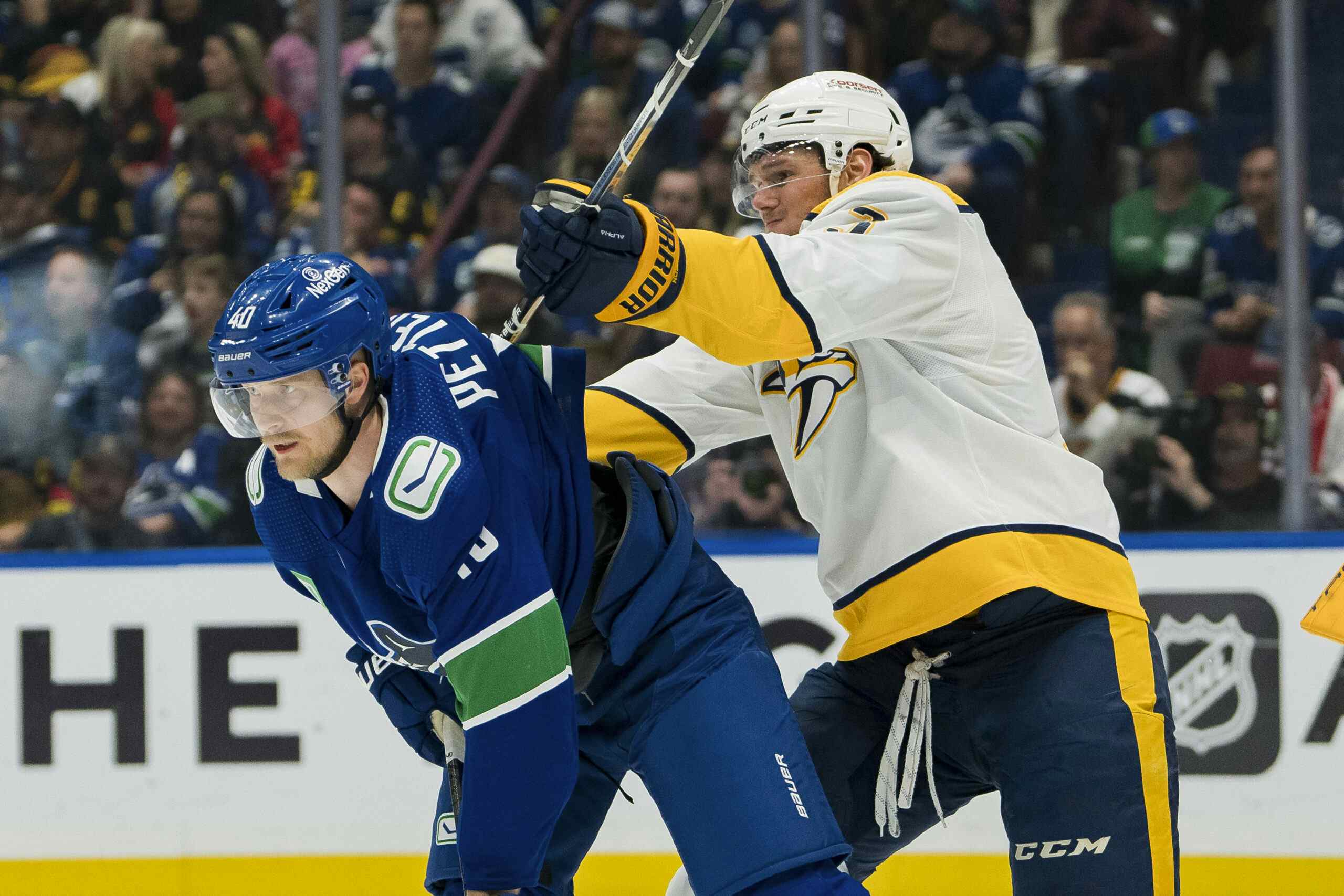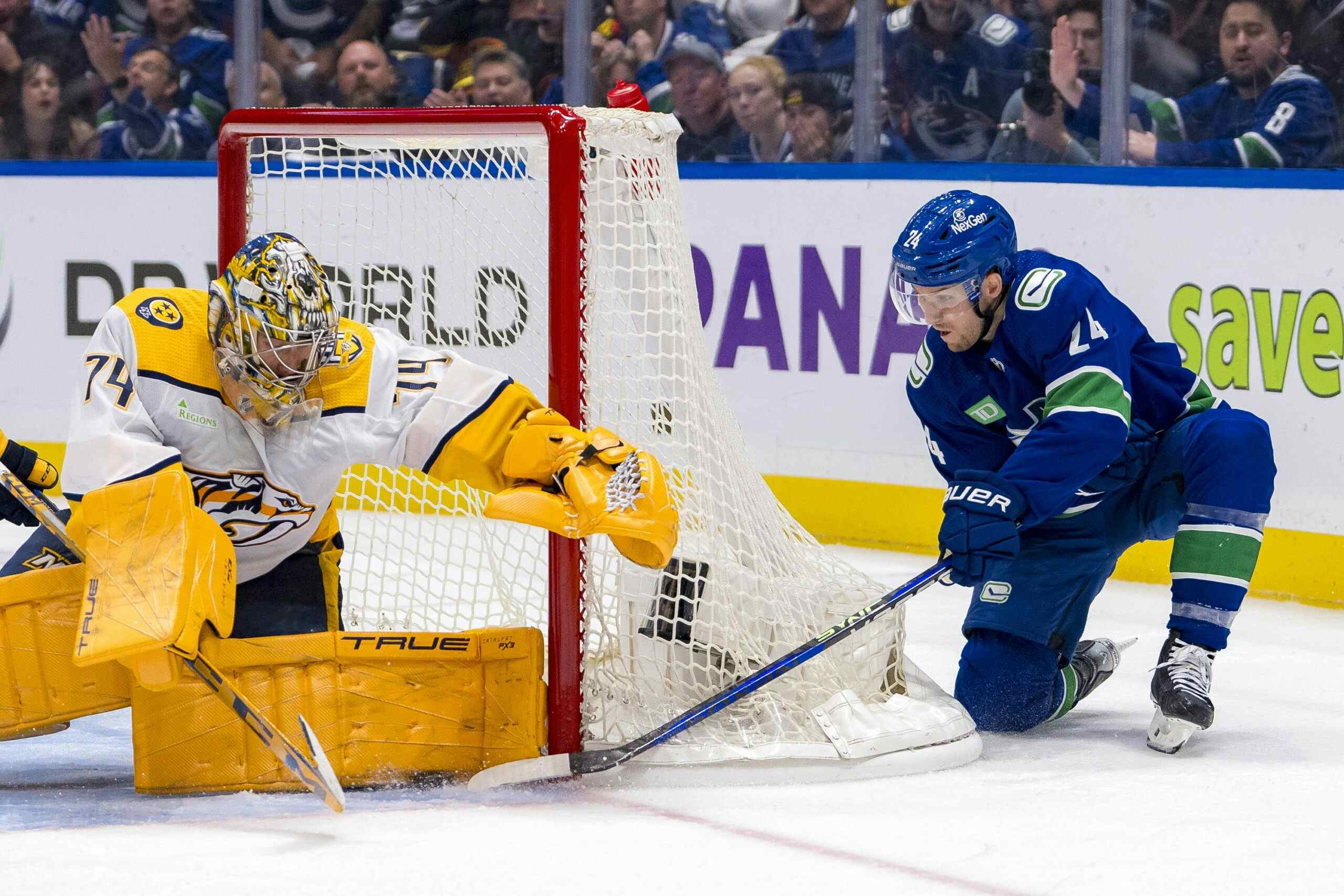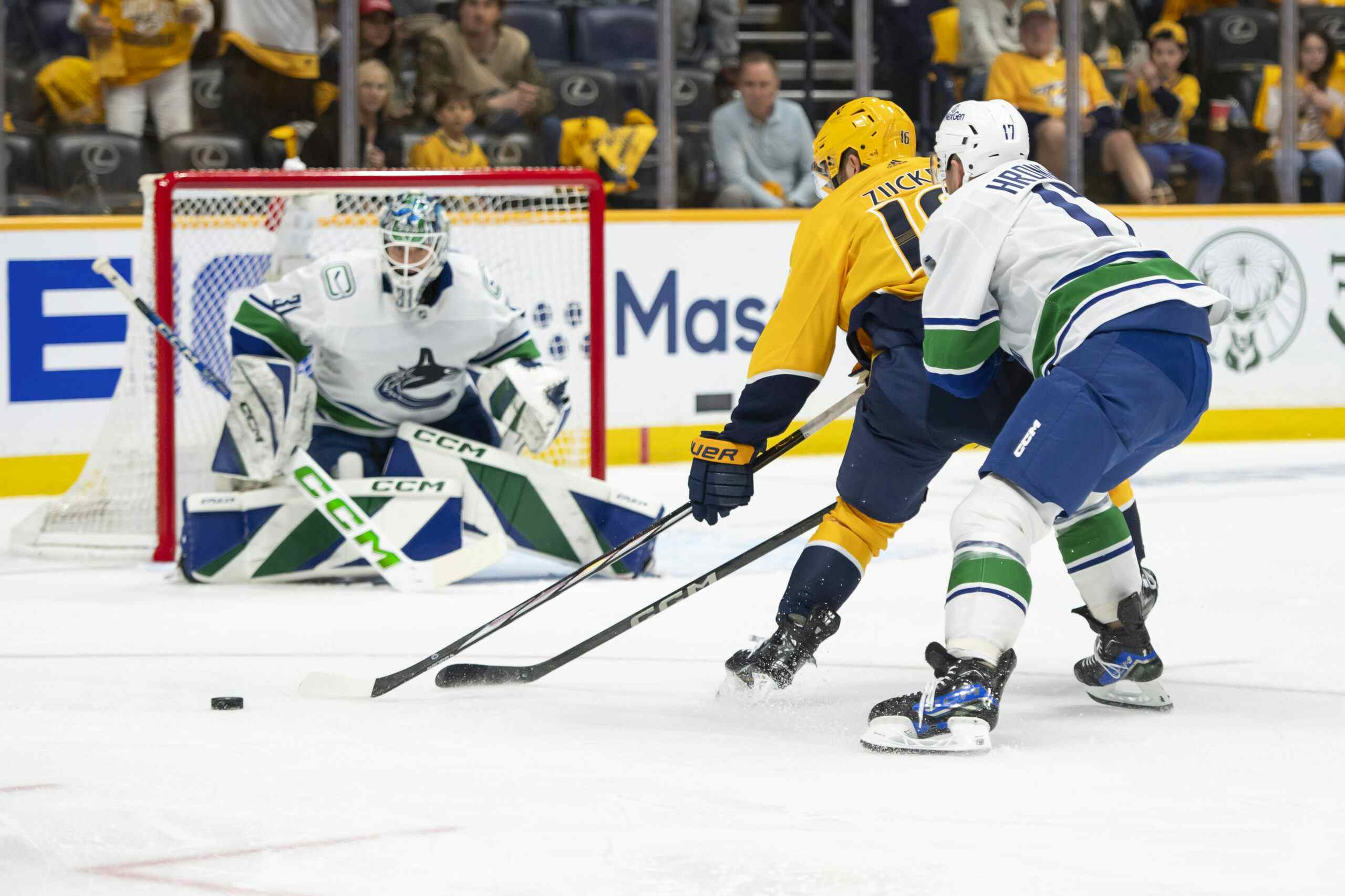FROM THE VAULT: TOM RENNEY’S DISMISSAL
By Taylor Perry
7 years agoThis is the first in a semi-regular series where we look back at moments in Canucks history.
It was November and, like today, a Thursday. After dropping the previous ten regular season games, the Canucks finally managed to eke out a win over the San Jose Sharks the night before – a 5-2 decision. Less than 20 games into the season, mired amidst player controversy, indifferent play, and disgruntled ownership, the struggling Canucks finally fired their head coach and one of his assistants.
The year was 1997.
Despite some similarities to the current squad, the situation was in reality very different. Most people outside of Vancouver – and many within – firmly believed the Canucks would be a lottery team this season, if not the league’s worst. And to the organization’s credit, although unintentionally, they’ve largely met those expectations in the early going.
But the 1997-98 Vancouver Canucks were expected to be far more than a basement dweller. Orca Bay Sports and Entertainment had gone out and spent massive amounts of money on free agents in the off-season, including Mark Messier, Arturs Irbe, and Grant Ledyard – not to mention the contract extension awarded(?) to Bryant “Big Country” Reeves for GM Place’s other tenant, the Vancouver Grizzlies. Owner John McCaw and Orca Bay expected a major return on their investment. And that meant more than simply qualifying for the playoffs.
Head Coach Tom Renney was probably out of his depth coaching established NHL superstars. Although he had experienced plenty of success at the junior level, coaching the WHL Kamloops Blazers to the Memorial Cup in 1992, his stint in Vancouver was his first in the NHL. The Canucks played a mostly uninspired 1996-97 season – his first at the helm – and finished with a 35-40-7 record, good for fourth in the Pacific Division and ninth in the Western Conference. He also had some international experience, leading Canada to the silver medal at the 1994 Winter Games in Lillehammer.
If any of this sounds remotely familiar, that is only partly intentional. Renney was born of a different stock than Willie Desjardins. He was a technical master, but his Canuck teams generally lacked any sort of structure. He banned beer on team flights which, while not a novel practice, signalled to the players a lack of trust in his charges, as well as his tendency to treat grown men like the adolescents he had coached in junior. The players quit on Renney, mocked him behind his back, and questioned his decisions. For all his knowledge of the game, his teams played lazy hockey. For teams with some unquestioned talent, they displayed a rather marked indifference. (N.B.: upon missing the playoffs in 1997, he said he told his players to “have a beer.”)
Renney was and remains an intelligent man. He was always an excellent quote, even following one of many devastating losses. “The beauty of losing like this,” he once said, following a 9-2 rout at the hands of the Colorado Avalanche, “Is that camouflages absolutely nothing.” And even he was acutely aware of being perceived as someone in over his head. “I don’t like the perception that I’m inadequate. But I know I will overcome that,” he said at the start of the 1997-98 season, a season he was not destined to finish.
But Renney was not the first Canuck employee to receive his pink slip that month. No, that honour went to late Canucks general manager (and new Hall of Fame inductee) Pat Quinn, who was fired on November 4th. Quinn’s firing came as a massive surprise, as essentially all of the Vancouver media assumed Renney would be the first shoe to drop. Orca Bay deputy chairman Stan McCammon dismissed Quinn because neither the business nor hockey operations appeared to have any hopeful direction. Quinn refused to fire Renney, so McCammon flew personally to Washington, DC (where the Canucks had lost 2-1 the night before to the Capitals) to relieve Quinn of his duties. He was replaced by an ad hoc consortium of Orca Bay president Stephen Bellringer, Steve Tambellini, McCammon, and assistant GM Mike Penny, an alliance that would last for all of ten days.
The team never really improved from that point onward. “Iron” Mike Keenan took over the reigns as coach and director of player personnel and began his reign of terror shortly thereafter. Renney’s firing, intended as a course correction, instead was only a detour on the road to inevitable derailment. The mass organizational chaos witnessed then resonates today. The Canucks were a bad team, built on a flawed foundation. No coaching change was going to make a difference. The change, ultimately, had to come at a deeper level.
With files from the Vancouver Sun
Recent articles from Taylor Perry





